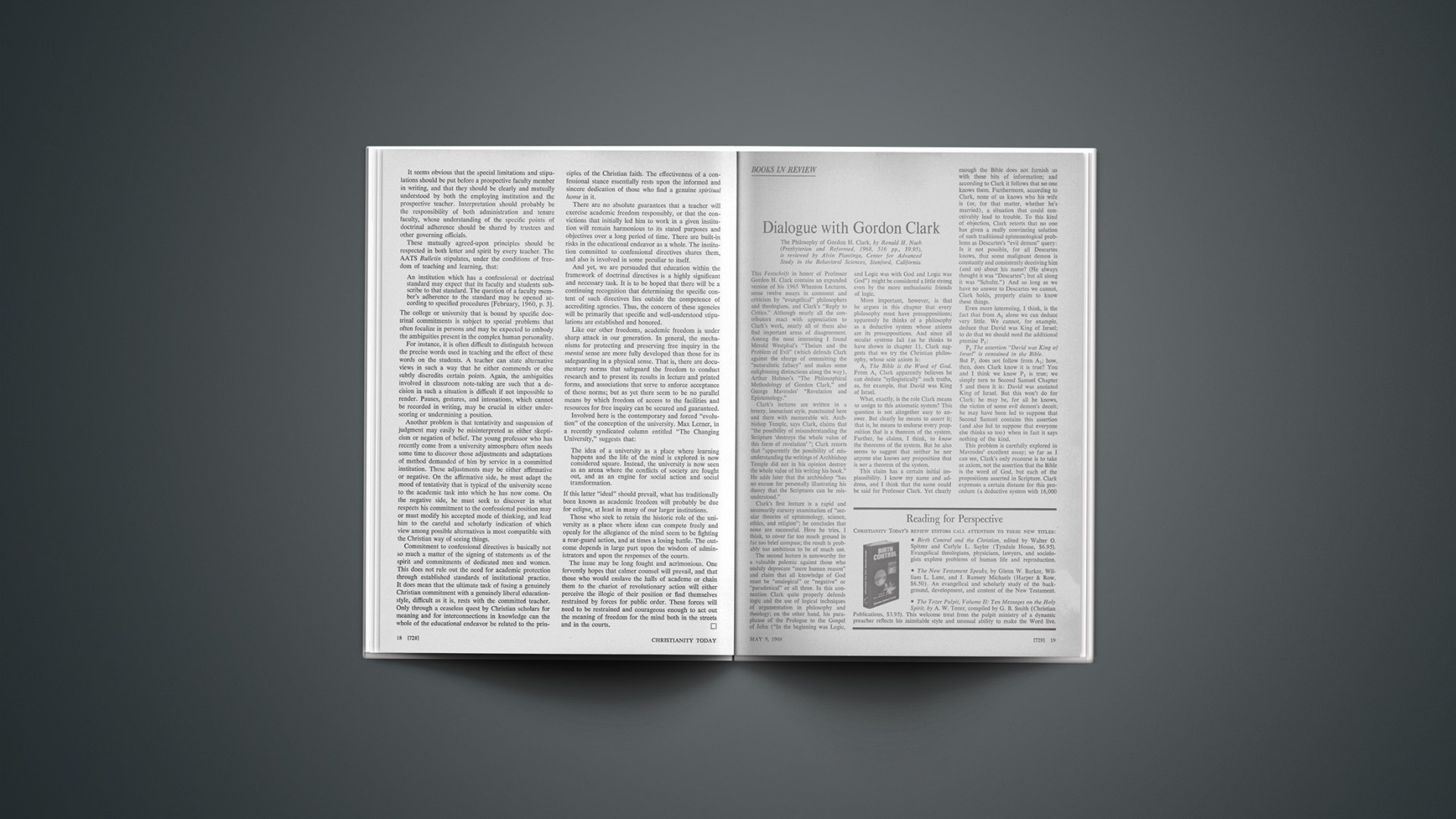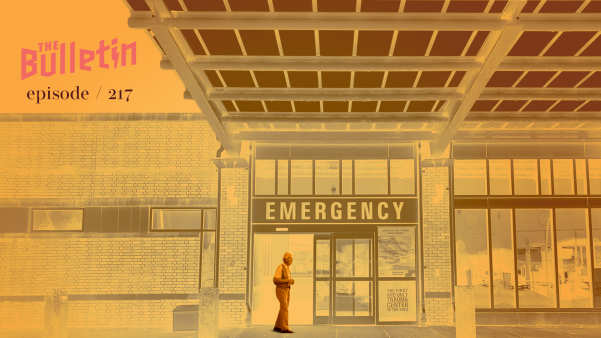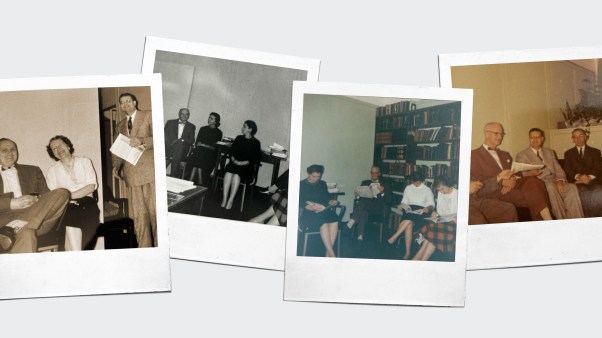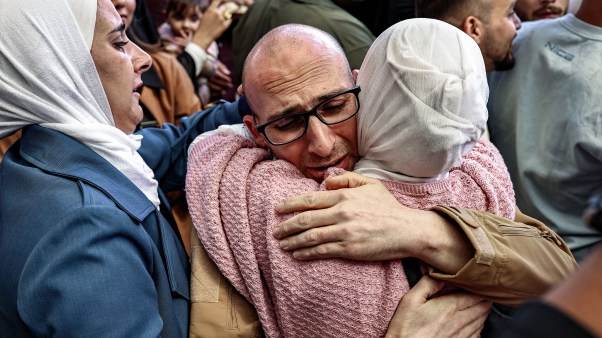A broad understanding of academic freedom includes recognition not only of the rights of teachers but also of the rights of students. First and foremost among these is the right of access to a representative segment of the available field of knowledge, including specifically the right to hear more than one side of controversial issues. This right concerns primarily the structured and classroom aspects of the learning process, and calls for encouragement of the widest possible range of inquiry.
Involved also is the right of access to the widest possible range of available subject matter in documentary and other forms. This objective can scarcely be served by reserve shelves or reading lists that ignore significant segments of the pertinent literature.
Again, the student has a right to find, particularly in verbal instruction, coherent patterns of class work. He deserves protection against unreasonable exposure to the favorite dislikes of his professors, and against the systematic erection and destruction of straw men.
A further right of the student is that of unimpeded access to the buildings and other resources of the college or university. This raises the important question of the right of a minority of students to “liberate” a building, imprison visitors to the campus, or confine its administrative officials. And it raises also the larger question of where the ownership of a university rests. There is a growing opinion among students of the Left that when an enrollee joins an academic community and pays his tuition (which probably covers at most one-fourth to one-third of the costs involved in his education), he thereby becomes a part-owner of the institution. In this view, the student body, by pooling the part-interests of all the students, becomes virtually the proprietor. This is a question yet to be adjudicated; but its implementation seems to violate the clear right of the student to pursue his work under conditions of relative relaxation.
The question of student rights sometimes focuses upon the right to determine what persons shall be invited to speak on campus, and incidentally, what speakers shall be denied a hearing. The reservation of this decision to the student rests upon deeper premises, as James R. Kreuzer points out in “A Student ‘Right’ Examined,” an article that appeared in the Summer, 1967, Bulletin of the American Association of University Professors. He describes how students view adults:
First, adults—parents, politicians, professors, presidents have as proof of their utter incompetence an impossible world situation; it is in the nature of things that one generation is the enemy of the next, that hence adults are not to be trusted. Second, administrators—college presidents and deans and their minions—are not only adults, hence incompetent, but evil as well. They are dedicated not to the furthering of the mission of the institution but to placating the natural enemies of the institution at whatever cost and at whatever sacrifice of principle. They are the enemies of change and the upholders of the status quo [p. 197].
Clearly, the question of the cause and content of the alienation students feel is an important ingredient in the determining of student rights. The same writer criticizes the view of historian Henry Steele Commager (see part one of this essay) that students have an unqualified right to decide on campus speakers and allied matters, even if they fulfill their duties badly.
Students see in Commager’s position their most cherished self-image. They are adults, responsible for their actions, free from faculty interference, free to stand on their own feet or fall on their faces [p. 199].
Dean Kreuzer believes that there may yet be a place for professional guidance in such matters as the invitation of campus speakers, and that administrators and faculty also have a stake in these questions.
The rights of students are involved deeply in situations in which the restraint or control of the operation of an institution rests with a minority that acts patently contrary to the wishes and interests of the institution itself and of the majority of students. It has proved tragically true in our time that a small but disciplined minority can succeed in trampling underfoot the evident and expressed wishes and the seemingly clear rights of the large majority of students. True, the elite will vehemently proclaim that they are in a better position to determine what the majority needs and therefore “wants” because of their superior abilities and their larger perspectives.
It will be of little avail to call the attention of these activists (and militants) to the position stated by Daniel Lerner and others in the chapter “The Nazi Elite” in World Revolutionary Elites. The view expressed and defended here is that the engineers of Nazism came from the privileged classes, that they represented an alienated aspect of these classes, that they relied upon violent and one-sided coercion as basic to social control, and that they built their power base upon disaffected and alienated elements in society.
The danger of the degeneration of student freedom into license finds an especially crucial expression when an activist minority deprives the majority of hearing speakers of proved distinction. Members of the militant minority do not hesitate to shout down invited speakers, seize microphones from their hands, tear up their manuscripts, and even block their exit from lecture halls. Here freedom has quite evidently been interpreted as license.
Again, students who wish to study have a right to protection against elites among their number who engage in “confrontation” without the slightest desire to seek solutions, and as a pretext for eliciting violence. These persons systematically set their demands at a level that rules out compromise, since compromise would deprive them of an excuse for bringing out their dupes in mob force to occupy buildings, challenge law-enforcement authorities, and destroy property. In other words, the sincere and earnest students who make up the vast majority have a right to protection against a disciplined and regimentarian minority that is determined to use the campus as a power base in its attempt to destroy the social and political order.
Seen in this light, the question of the “ownership” of the educational institution is largely an academic matter. The simplistic assumption that it “belongs to the students” is absurd (even when seen apart from the normal legal canons of property tenure and the usual procedures for the use of stipulated funds and the pursuit of stated objectives), for it supposes that “the students” constitute some sort of philosophical entity. The activists’ attempt to make the campus a preliminary target in the struggle for revolution in our land has nothing to do with the stated objective of “liberating the institution for the students.”
It seems clear, then, that the serious student (and to his category belong the vast majority) has a right to be protected at two points. First, he can reasonably expect protection against arbitrary treatment in academic matters. If the professor has freedom to seek for truth from all directions, so also the student can ask for both opportunity and overt encouragement in the same task. He deserves also freedom from arbitrary grading, and free access to effective channels in case of clear and flagrant violation of the canons of fairness.
Second, he has a right to be free from exploitation by disciplined and regimentarian minorities who arrogate to themselves the responsibility of being architects of a “new order” that at the moment has no visible blueprint, and whose base would certainly not be the free expression of the popular will. No student who spends his time and money for an education should have to tolerate having the resources of his chosen institution taken over by dissidents whose “confrontation” offers no ground for negotiation, and whose very continuance in disruptive business depends upon “no negotiation.”
Thus the student finds himself, not so much tempted to let his own freedom degenerate into license, as faced with the possibility of being exploited by an elite that will settle only for license leading to anarchy. There remains much work to be done in the area of academic freedom for the sincere and diligent student.
A third, and in some respects exceedingly complex, aspect of the problem of academic freedom concerns institutions with unusual and special commitments. An example is the confessional institution, whether church-related or interconfessional, that is committed to a specific doctrinal stance. The governing standards of such institutions are often embedded in their charters, and often reflect the doctrinal and procedural expectations of sponsoring constituencies.
The American Association of Theological Schools, which assents in general to the 1940 AAUP Statement (see part one of this essay), includes in its Bulletin for February, 1960, a discussion of the special situations that arise in this connection:
Christian freedom exists within the confession of Christian faith. Theological schools may acknowledge specific confessional adherence as laid down in the charters and constitutions of the schools. A concept of freedom appropriate to theological schools will respect this confessional loyalty as well as the general standards of Christian community. At the same time, no confessional standard obviates the requirement for liberty of conscience in the Christian community and the practice of the highest ideals of academic freedom [pp. 2 f.].
It may be assumed that the norms laid down here are appropriate also for colleges maintaining a confessional position. Their relevance to a university conducted under parallel conditions of doctrinal adherence raises some further problems. The Catholic Church is at present wrestling with some of these.
It remains to be seen whether, for example, the position set forth by the Rev. Robert E. Hunt of the Catholic University of America will be approved by the hierarchy. There is, he says, “no cogent reason in the theory why the Catholic theologian and the student of Catholic theology cannot live by the canons of academic freedom as developed, operative and normative in the United States today” (Christian Heritage, October, 1968, p. 16). In saying this he seems willing to waive any special provisions for confessional institutions. The problems such institutions face in carrying out their special stipulations may account in part for the reluctance of some to seek accreditation in regional or national agencies. Certainly no administrator responsible for a confessional institution can remain unaware of some problem areas here.
It seems obvious that the special limitations and stipulations should be put before a prospective faculty member in writing, and that they should be clearly and mutually understood by both the employing institution and the prospective teacher. Interpretation should probably be the responsibility of both administration and tenure faculty, whose understanding of the specific points of doctrinal adherence should be shared by trustees and other governing officials.
These mutually agreed-upon principles should be respected in both letter and spirit by every teacher. The AATS Bulletin stipulates, under the conditions of freedom of teaching and learning, that:
An institution which has a confessional or doctrinal standard may expect that its faculty and students subscribe to that standard. The question of a faculty member’s adherence to the standard may be opened according to specified procedures [February, 1960, p. 3].
The college or university that is bound by specific doctrinal commitments is subject to special problems that often focalize in persons and may be expected to embody the ambiguities present in the complex human personality.
For instance, it is often difficult to distinguish between the precise words used in teaching and the effect of these words on the students. A teacher can state alternative views in such a way that he either commends or else subtly discredits certain points. Again, the ambiguities involved in classroom note-taking are such that a decision in such a situation is difficult if not impossible to render. Pauses, gestures, and intonations, which cannot be recorded in writing, may be crucial in either underscoring or undermining a position.
Another problem is that tentativity and suspension of judgment may easily be misinterpreted as either skepticism or negation of belief. The young professor who has recently come from a university atmosphere often needs some time to discover those adjustments and adaptations of method demanded of him by service in a committed institution. These adjustments may be either affirmative or negative. On the affirmative side, he must adapt the mood of tentativity that is typical of the university scene to the academic task into which he has now come. On the negative side, he must seek to discover in what respects his commitment to the confessional position may or must modify his accepted mode of thinking, and lead him to the careful and scholarly indication of which view among possible alternatives is most compatible with the Christian way of seeing things.
Commitment to confessional directives is basically not so much a matter of the signing of statements as of the spirit and commitments of dedicated men and women. This does not rule out the need for academic protection through established standards of institutional practice. It does mean that the ultimate task of fusing a genuinely Christian commitment with a genuinely liberal education-style, difficult as it is, rests with the committed teacher. Only through a ceaseless quest by Christian scholars for meaning and for interconnections in knowledge can the whole of the educational endeavor be related to the principles of the Christian faith. The effectiveness of a confessional stance essentially rests upon the informed and sincere dedication of those who find a genuine spiritual home in it.
There are no absolute guarantees that a teacher will exercise academic freedom responsibly, or that the convictions that initially led him to work in a given institution will remain harmonious to its stated purposes and objectives over a long period of time. There are built-in risks in the educational endeavor as a whole. The institution committed to confessional directives shares them, and also is involved in some peculiar to itself.
And yet, we are persuaded that education within the framework of doctrinal directives is a highly significant and necessary task. It is to be hoped that there will be a continuing recognition that determining the specific content of such directives lies outside the competence of accrediting agencies. Thus, the concern of these agencies will be primarily that specific and well-understood stipulations are established and honored.
Like our other freedoms, academic freedom is under sharp attack in our generation. In general, the mechanisms for protecting and preserving free inquiry in the mental sense are more fully developed than those for its safeguarding in a physical sense. That is, there are documentary norms that safeguard the freedom to conduct research and to present its results in lecture and printed forms, and associations that serve to enforce acceptance of these norms; but as yet there seem to be no parallel means by which freedom of access to the facilities and resources for free inquiry can be secured and guaranteed.
Involved here is the contemporary and forced “evolution” of the conception of the university. Max Lerner, in a recently syndicated column entitled “The Changing University,” suggests that:
The idea of a university as a place where learning happens and the life of the mind is explored is now considered square. Instead, the university is now seen as an arena where the conflicts of society are fought out, and as an engine for social action and social transformation.
If this latter “ideal” should prevail, what has traditionally been known as academic freedom will probably be due for eclipse, at least in many of our larger institutions.
Those who seek to retain the historic role of the university as a place where ideas can compete freely and openly for the allegiance of the mind seem to be fighting a rear-guard action, and at times a losing battle. The outcome depends in large part upon the wisdom of administrators and upon the responses of the courts.
The issue may be long fought and acrimonious. One fervently hopes that calmer counsel will prevail, and that those who would enslave the halls of academe or chain them to the chariot of revolutionary action will either perceive the illogic of their position or find themselves restrained by forces for public order. These forces will need to be restrained and courageous enough to act out the meaning of freedom for the mind both in the streets and in the courts.










